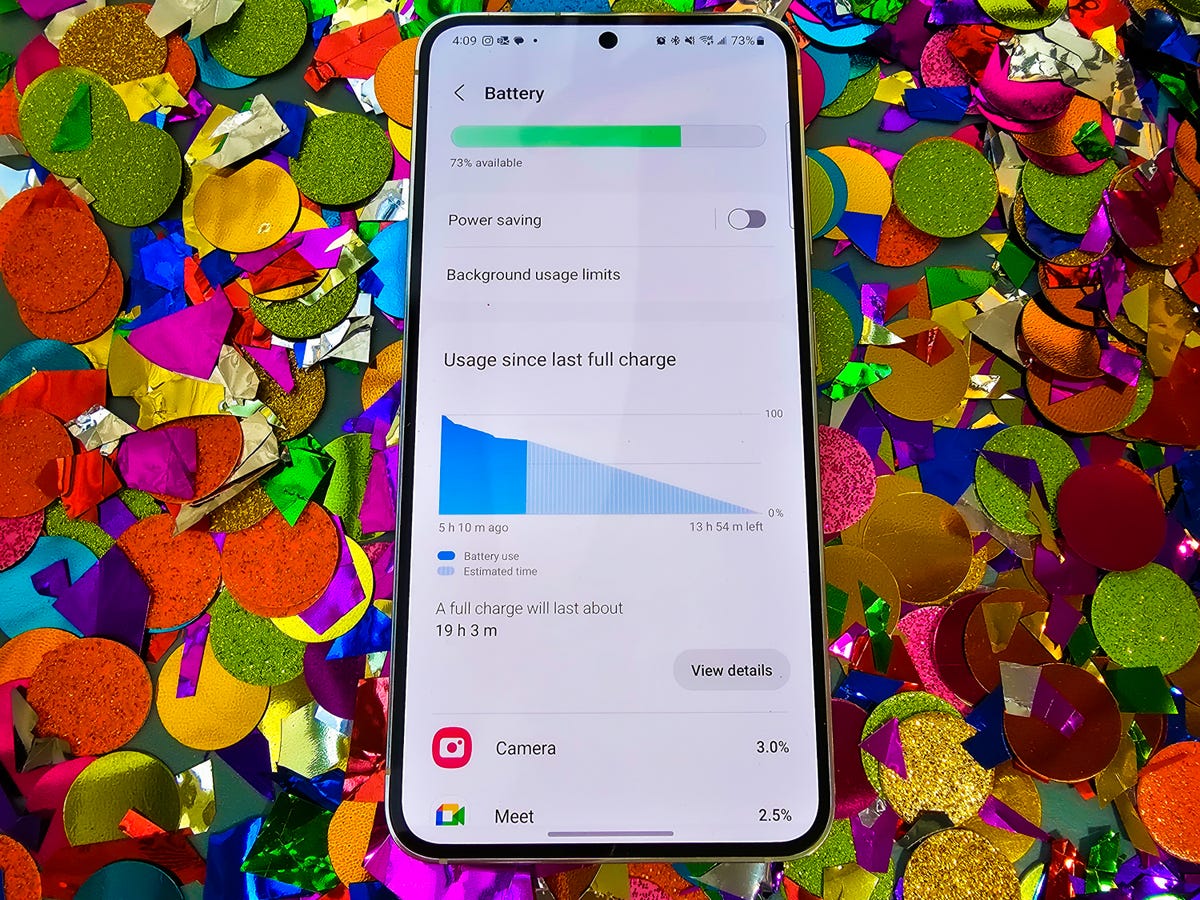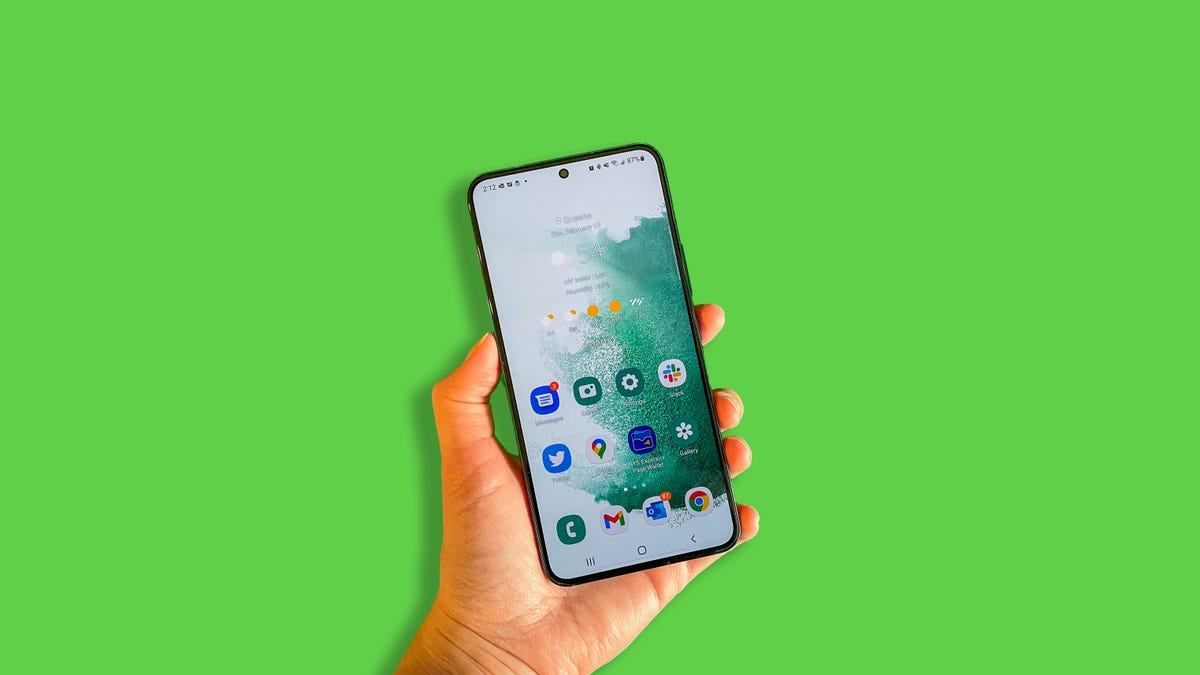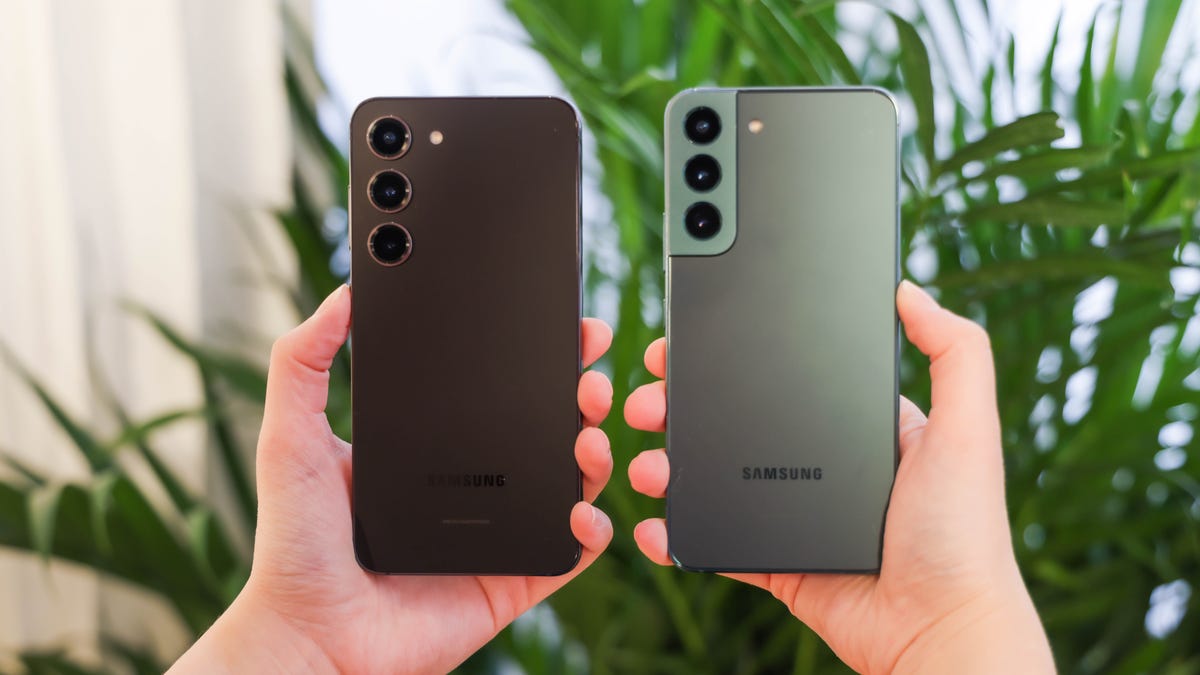This story is part of Samsung Event, CNET’s collection of news, tips and advice around Samsung’s most popular products.
My biggest complaint about last year’s Galaxy S22 was that its battery didn’t last long enough on a single charge. Samsung addressed that shortcoming with the recently launched Galaxy S23, which has a larger battery and a more efficient processor.
The Galaxy S23 doesn’t offer record-breaking battery life, but it’s enough of an improvement to make me feel comfortable using it on a busy day without carrying a charger. That’s more than I could say for the Galaxy S22, which left me with battery anxiety on long days spent away from a power outlet.
Petite Android phones like the Galaxy S23 and Galaxy S22 can be hard to come by, which is why I’m glad Samsung made this fix to its 6.1-inch flagship phone.
Galaxy S23’s bigger battery makes a difference


The Galaxy S23 has a bigger battery than its predecessor.
Lisa Eadicicco/CNETSamsung increased the Galaxy S23’s battery capacity by 200 mAh compared to the Galaxy S22. The new phone has a 3,900-mAh battery; last year’s device had 3,700 mAh. But that’s not the only factor influencing battery life.
The Galaxy S23 family runs on a version of Qualcomm’s Snapdragon 8 Gen 2 processor that’s been optimized specifically for the Galaxy S23 series. Samsung says this new processor brings better power efficiency, contributing to the phone’s longer battery life.
Even after spending a short time with the Galaxy S23, these changes are noticeable. The Galaxy S22’s battery would sometimes dip to the 30s or 40s by roughly 9 p.m. after a long day in the office. I even had to borrow a colleague’s charger once while attending an all-day work event because I was worried I wouldn’t make it to the evening. (I typically had the always-on display turned off and the refresh rate set to standard instead of adaptive.)
My experience with the Galaxy S23 has been very different so far. I still had 64% of my battery left by 12:36 a.m. on a recent Sunday having taken the phone off its charger at 10 a.m. However, it’s important to note that I also wasn’t using my phone very frequently that afternoon. I was spending time with my family for a large chunk of the day, so I mostly kept my phone tucked away in my pocket, only retrieving it to occasionally check my texts or take a photo.
But even on a busy day, the Galaxy S23 still had more of its battery left than the Galaxy S22 likely would have. After a day of running benchmarks, taking lots of photos, recording videos and streaming YouTube videos as part of my review testing, I still had 46% of my battery left by 9:45 p.m. That’s not so bad when you consider the Galaxy S22 sometimes had 30% to 40% of its battery left by around 9 p.m. after using the phone heavily throughout the day. I also left the adaptive refresh rate setting turned on most of the time I spent with the Galaxy S23.
To further test the battery, I put each phone through a 45-minute endurance test and a three-hour battery drain test. During the 45-minute test, I continuously streamed videos on YouTube, made a video call, played mobile games and scrolled through social media feeds to see how much of a dent these everyday tasks would make in each phone’s battery. For the three-hour test, I streamed YouTube with the display brightness set to 100% and checked the battery percentage once every hour to see how much it had drained.
Unsurprisingly, the Galaxy S23 beat the Galaxy S22 in both tests, as you can see in the tables below.
Galaxy S23 vs. Galaxy S22 45-minute test
| Galaxy S23 | 91% |
|---|---|
| Galaxy S22 | 89% |
Galaxy S23 vs. Galaxy S22 3-hour test
| 1 hour | 2 hours | 3 hours | |
|---|---|---|---|
| Galaxy S23 | 95% | 88% | 81% |
| Galaxy S22 | 91% | 81% | 71% |
It’s important to remember that battery life will always vary depending on how you use your device. Factors like screen brightness and the types of apps you’re using will impact battery life, so your experience may not directly mirror mine. For example, even though I sometimes struggled to get through a whole day using the Galaxy S22, I was able to preserve roughly 60 to 70% of my battery by 9 p.m. with the always-on display turned off on days mostly spent at home.
How to get the most battery life out of your Galaxy S22


The Galaxy S22.
Lisa Eadicicco/CNETIf you own a Galaxy S22 and are struggling with battery life, there are a few steps you can take to maximize your device’s longevity. First, try turning down the screen brightness by pulling down from the top of the display to access your phone’s quick settings menu.
You’ll also want to make sure the adaptive brightness setting is disabled to prevent your phone from automatically boosting brightness when needed. While that can be a useful feature under normal circumstances, you might not want the brightness to increase when you’re trying to conserve battery life. Open your Galaxy S22’s settings menu, choose the display option and make sure the switch next to adaptive brightness is toggled off.
It’s also a good idea to try turning off the adaptive refresh rate and always-on display settings if you’re trying to extend battery life, which you can toggle in the settings menu.
Samsung devices have a power savings mode that disables certain settings to make the battery last longer. Open the settings menu, select the battery and device care option and then tap battery to access it. From this battery menu, you can also limit battery usage for apps that you don’t use very often.
These tips will work on the Galaxy S23 too, which also has a light performance mode to prioritize battery life and cooling efficiency over high performance. To turn this on, open the Galaxy S23’s settings menu, tap battery and device care, and select battery. Scroll down to the bottom of the screen and choose the more battery settings option. From there, you should see a field called performance profile, which you can tap to switch between standard and light. (During my time with the Galaxy S23, I had it set to standard.)
If that’s not enough, you can try purchasing a portable charger or power bank to power up your device on the go.
With its new $700 price, the Galaxy S22 is a tempting choice alongside the $800 Galaxy S23. Just remember you’ll be sacrificing some battery life to save that money.



